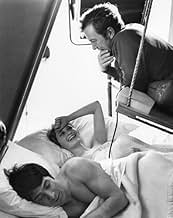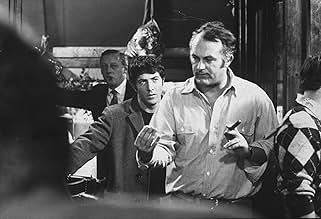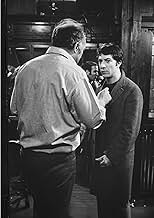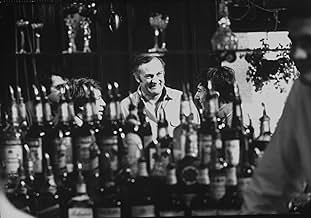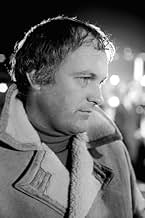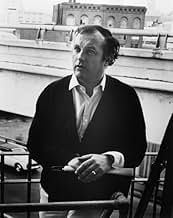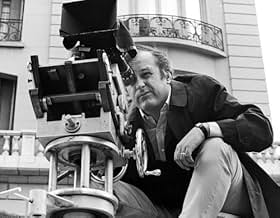Peter Yates(1929-2011)
- Director
- Producer
- Second Unit Director or Assistant Director
Having seen Robbery (1967) and
Bullitt (1968), it comes as no surprise
that Peter Yates started out as a professional racing car driver and
team manager - albeit briefly - before turning his attention to film.
The son of a military man, he was educated at Charterhouse School and
trained at RADA, gaining his first experience as an actor with local
repertory companies. In the early 1950's, he worked as a dubbing
assistant, cutter, stage manager and theatre director (Royal Court),
eventually graduating to assistant director on
The Inn of the Sixth Happiness (1958).
He cut his teeth, directing many episodes of
The Saint (1962) and
Secret Agent (1964) for television,
before helming his first feature film, the musical
Summer Holiday (1963).
"Summer Holiday" did nothing for his career. However, the exhilarating car chase through the streets of London - staged for his next film, "Robbery" - so impressed Steve McQueen that he requested Yates to direct him in "Bullitt". The rest is history: for many years, THAT car chase became the yard stick by which all others were measured. The success of this venture prompted Yates to remain in America, adapting himself to a variety of other genres, though continuing to be preoccupied with action subjects. His best films include the stylish and ingenious caper comedy The Hot Rock (1972); the underwater adventure The Deep (1977), based on the novel and screenplay by Peter Benchley; and the quirky coming-of-age comedy Breaking Away (1979). For the latter, Yates received simultaneous Oscar nominations as Best Director and Best Producer.
He was nominated again for a more cerebral 'actor's piece', The Dresser (1983), starring Albert Finney and Tom Courtenay , based on a play about an ageing stage actor and his long-standing assistant. Never a prolific director, Yates subsequently made only a few more films. Most memorable, perhaps, were the courtroom thriller Suspect (1987), the political drama The House on Carroll Street (1988) and the enjoyably old-fashioned comedy It All Came True (1998), starring Michael Caine and Maggie Smith as a couple of theatrical ghosts.
"Summer Holiday" did nothing for his career. However, the exhilarating car chase through the streets of London - staged for his next film, "Robbery" - so impressed Steve McQueen that he requested Yates to direct him in "Bullitt". The rest is history: for many years, THAT car chase became the yard stick by which all others were measured. The success of this venture prompted Yates to remain in America, adapting himself to a variety of other genres, though continuing to be preoccupied with action subjects. His best films include the stylish and ingenious caper comedy The Hot Rock (1972); the underwater adventure The Deep (1977), based on the novel and screenplay by Peter Benchley; and the quirky coming-of-age comedy Breaking Away (1979). For the latter, Yates received simultaneous Oscar nominations as Best Director and Best Producer.
He was nominated again for a more cerebral 'actor's piece', The Dresser (1983), starring Albert Finney and Tom Courtenay , based on a play about an ageing stage actor and his long-standing assistant. Never a prolific director, Yates subsequently made only a few more films. Most memorable, perhaps, were the courtroom thriller Suspect (1987), the political drama The House on Carroll Street (1988) and the enjoyably old-fashioned comedy It All Came True (1998), starring Michael Caine and Maggie Smith as a couple of theatrical ghosts.


